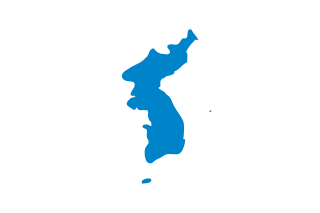| |||||
| Centuries: | |||||
|---|---|---|---|---|---|
| Decades: | |||||
| See also: | List of years in India Timeline of Indian history | ||||
Events from the year 1594 in India.
| |||||
| Centuries: | |||||
|---|---|---|---|---|---|
| Decades: | |||||
| See also: | List of years in India Timeline of Indian history | ||||
Events from the year 1594 in India.

Brunei, formally Brunei Darussalam, is a country in Southeast Asia, situated on the northern coast of the island of Borneo. Apart from its coastline on the South China Sea, it is completely surrounded by the Malaysian state of Sarawak, with its territory bifurcated by the Sarawak district of Limbang. Brunei is the only sovereign state entirely on Borneo; the remainder of the island is divided between Malaysia and Indonesia. As of 2020 the country had a population of 460,345, of whom approximately 100,000 resided in the capital and largest city Bandar Seri Begawan. The government of Brunei is an absolute monarchy ruled by the Sultan of Brunei, and it implements a fusion of English common law and jurisprudence inspired by Islam, including sharia.

Cleveland, officially the City of Cleveland, is a city in the U.S. state of Ohio and the county seat of Cuyahoga County. Located in Northeast Ohio along the southern shore of Lake Erie, it is situated across the U.S. maritime border with Canada and lies approximately 60 miles (97 km) west of Pennsylvania.

Herodotus was a Greek historian and geographer from the Greek city of Halicarnassus, part of the Persian Empire and a later citizen of Thurii in modern Calabria, Italy. He is known for having written the Histories – a detailed account of the Greco-Persian Wars. Herodotus was the first writer to perform systematic investigation of historical events. He is referred to as "The Father of History", a title conferred on him by the ancient Roman orator Cicero.

The history of ancient Israel and Judah begins in the Southern Levant region of Western Asia during the Late Bronze Age and Early Iron Age. "Israel" as a people or tribal confederation appears for the first time in the Merneptah Stele, an inscription from ancient Egypt that dates to about 1208 BCE, with the people group possibly being older. According to modern archaeology, ancient Israelite culture developed as an outgrowth from the Semitic Canaanites. Two related Israelite polities known as the Kingdom of Israel (Samaria) and the Kingdom of Judah had emerged in the region by Iron Age II.

Anatomically modern humans first arrived on the Indian subcontinent between 73,000 and 55,000 years ago. The earliest known human remains in South Asia date to 30,000 years ago. Sedentariness began in South Asia around 7000 BCE; by 4500 BCE, settled life had increasingly spread, and gradually evolved into the Indus Valley civilisation, which flourished between 2500 BCE and 1900 BCE in present-day Pakistan and north-western India. Early in the second millennium BCE, persistent drought caused the population of the Indus Valley to scatter from large urban centres to villages. Indo-Aryan tribes moved into the Punjab from Central Asia in several waves of migration. The Vedic Period was marked by the composition of their large collections of hymns (Vedas). The social structure was stratified via the varna system, which persists till this day. The pastoral and nomadic Indo-Aryans spread from the Punjab into the Gangetic plain. Around 600 BCE, a new, interregional culture arose; then, small chieftaincies (janapadas) were consolidated into larger states (mahajanapadas). A second urbanisation took place, which came with the rise of new ascetic movements and religious concepts, including the rise of Jainism and Buddhism. The latter was synthesised with the preexisting religious cultures of the subcontinent, giving rise to Hinduism.

Korea is a peninsular region in East Asia. Since 1945, it has been divided at or near the 38th parallel, now known as the Korean Demilitarized Zone, with South Korea comprising its southern half and North Korea comprising its northern half. The region consists of the Korean Peninsula, Jeju Island, and a number of minor islands near the peninsula. The peninsula is bordered by China (Manchuria) to the north and Russia to the northeast, across the Amrok and Duman rivers. It is separated from Japan to the southeast by the Korea Strait.

The Philadelphia Phillies are an American professional baseball team based in Philadelphia. The Phillies compete in Major League Baseball (MLB) as a member of the National League (NL) East division. Since 2004, the team's home stadium has been Citizens Bank Park, located in the South Philadelphia Sports Complex.

Yahweh was an ancient Levantine deity, and national god of the Israelite kingdoms of Israel and Judah. Though no consensus exists regarding the deity's origins, scholars generally contend that Yahweh emerged as a "divine warrior" associated first with Seir, Edom, Paran and Teman, and later with Canaan. The origins of his worship reach at least to the early Iron Age, and likely to the Late Bronze Age, if not somewhat earlier.

Eastern Europe is a subregion of the European continent. As a largely ambiguous term, it has a wide range of geopolitical, geographical, ethnic, cultural, and socio-economic connotations. Its eastern boundary is marked by the Ural Mountains, whilst its western boundary is defined in various ways. Most definitions include the countries of Belarus, Russia, Ukraine and Moldova, while less restrictive definitions also may include some or all of the Czech Republic, Poland, Slovakia, Hungary, Romania, Kazakhstan, Georgia, Armenia, Azerbaijan, the Baltic states, and the Balkans.

The Delhi Sultanate or the Sultanate of Delhi was a late medieval empire primarily based in Delhi that stretched over large parts of the Indian subcontinent, for 320 years (1206–1526). Following the invasion of South Asia by the Ghurid dynasty, five largely unrelated dynasties ruled over the Delhi Sultanate sequentially: the Mamluk dynasty (1206–1290), the Khalji dynasty (1290–1320), the Tughlaq dynasty (1320–1414), the Sayyid dynasty (1414–1451), and the Lodi dynasty (1451–1526). It covered large swaths of territory in modern-day India, Pakistan, and Bangladesh as well as some parts of southern Nepal.

Jewish history is the history of the Jews, and their nation, religion, and culture, as it developed and interacted with other peoples, religions, and cultures.

In modern historiography, ancient Rome encompasses the founding of the Italian city of Rome in the 8th century BC, the Roman Kingdom, Roman Republic, Roman Empire, and the collapse of the Western Roman Empire in the 5th century AD.

The British Raj was the rule of the British Crown on the Indian subcontinent; it is also called Crown rule in India, or Direct rule in India, and lasted from 1858 to 1947. The region under British control was commonly called India in contemporaneous usage and included areas directly administered by the United Kingdom, which were collectively called British India, and areas ruled by indigenous rulers, but under British paramountcy, called the princely states. The region was sometimes called the Indian Empire, though not officially.

The Von Erich family is an American professional wrestling family. Originally from Texas, their actual surname is Adkisson, but every member who has been in the wrestling business has used the ring name "Von Erich," after the family patriarch, Fritz Von Erich. Jack took on the name as part of his wrestling gimmick as he originally portrayed a Nazi heel, hence his use of a German name.
The history of the Jews and Judaism in the Land of Israel has its origins in the 2nd millennium BCE, when Israelites emerged as an outgrowth of southern Canaanites, During biblical times, a postulated United Kingdom of Israel existed before splitting into two Israelite kingdoms occupying the highland zone: the Kingdom of Israel (Samaria) in the north, and the Kingdom of Judah in the south. The Kingdom of Israel was conquered by the Neo-Assyrian Empire, and the Kingdom of Judah by the Neo-Babylonian Empire. Initially exiled to Babylon, upon the defeat of the Neo-Babylonian Empire by the Achaemenid Empire under Cyrus the Great, many of the Jewish exiles returned to Jerusalem, building the Second Temple.

History is the systematic study and documentation of the human past.

East Asia is the easternmost region of Asia, which is defined in both geographical and ethno-cultural terms. The modern states of East Asia include China, Japan, Mongolia, North Korea, South Korea, and Taiwan. Hong Kong and Macau, two small coastal quasi-dependent territories located in the south of China, are officially highly autonomous but are under Chinese sovereignty. Japan, Taiwan, South Korea, China, Hong Kong, and Macau are some of the world's largest and most prosperous economies. East Asia borders Siberia and the Russian Far East to the north, Southeast Asia to the south, South Asia to the southwest, and Central Asia to the west. To the east is the Pacific Ocean and to the southeast is Micronesia.

Judea, Judaea, or Judah is a mountainous region of the Levant. Traditionally dominated by the city of Jerusalem, it is now part of Palestine and Israel.

The Mughal Empire was an early modern empire in South Asia. At its peak, the empire stretched from the outer fringes of the Indus River Basin in the west, northern Afghanistan in the northwest, and Kashmir in the north, to the highlands of present-day Assam and Bangladesh in the east, and the uplands of the Deccan Plateau in South India.